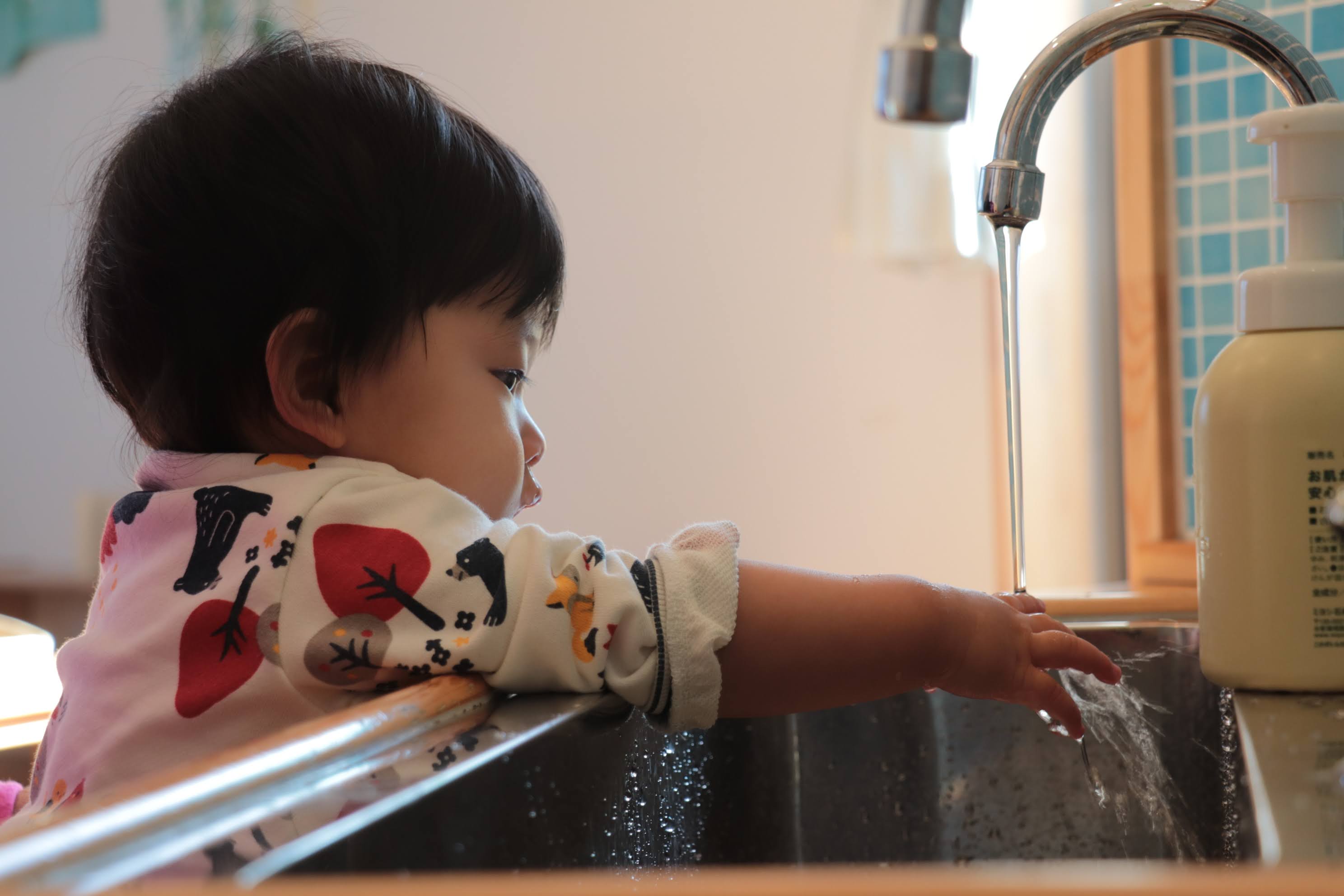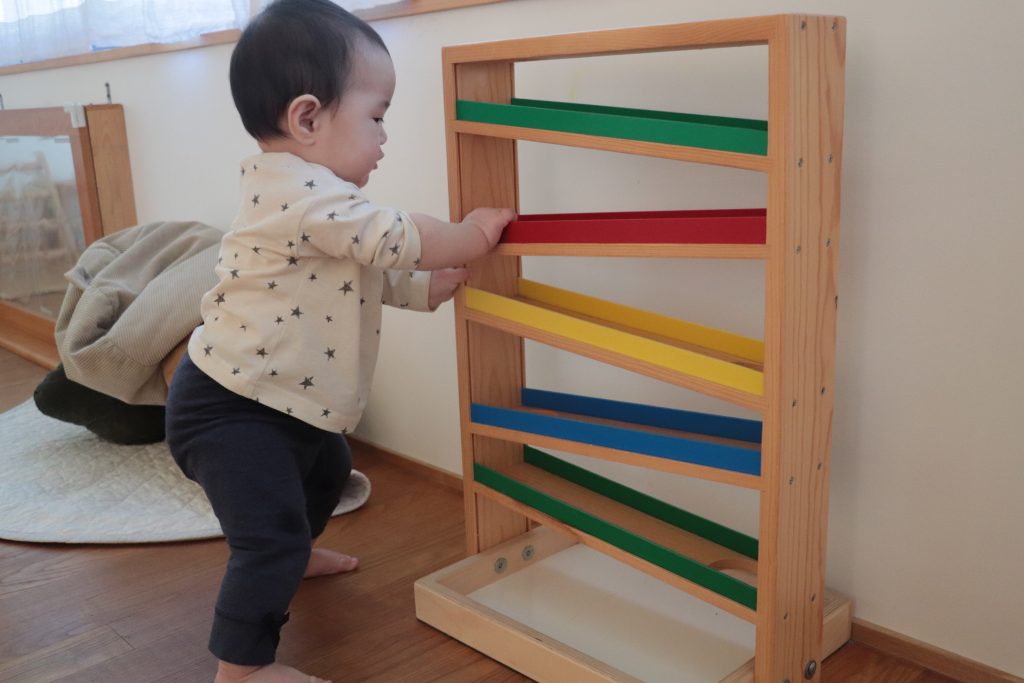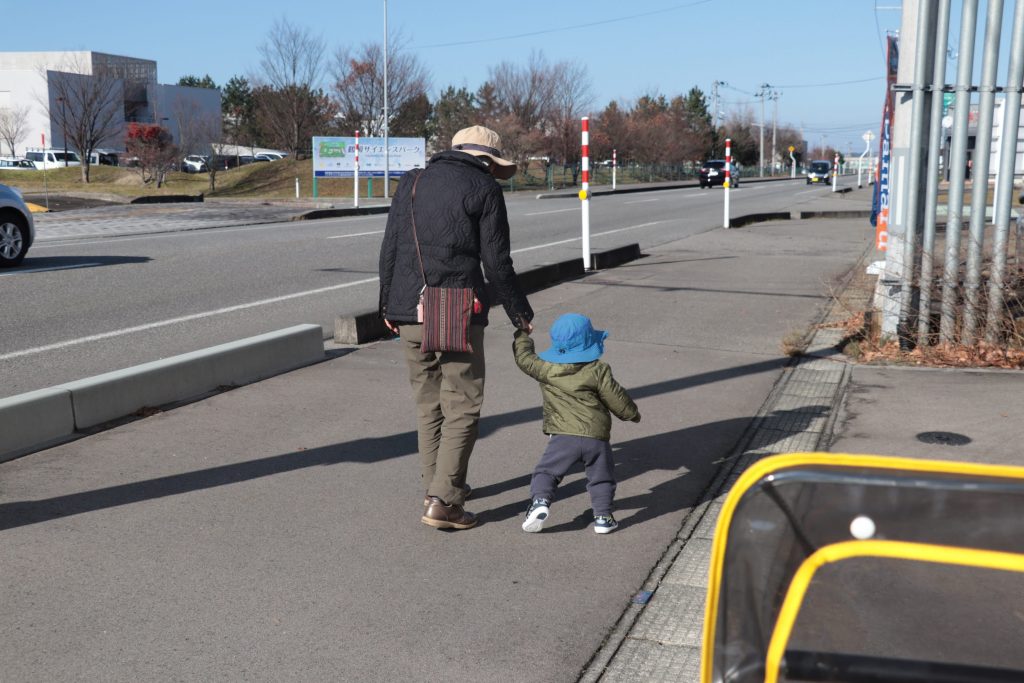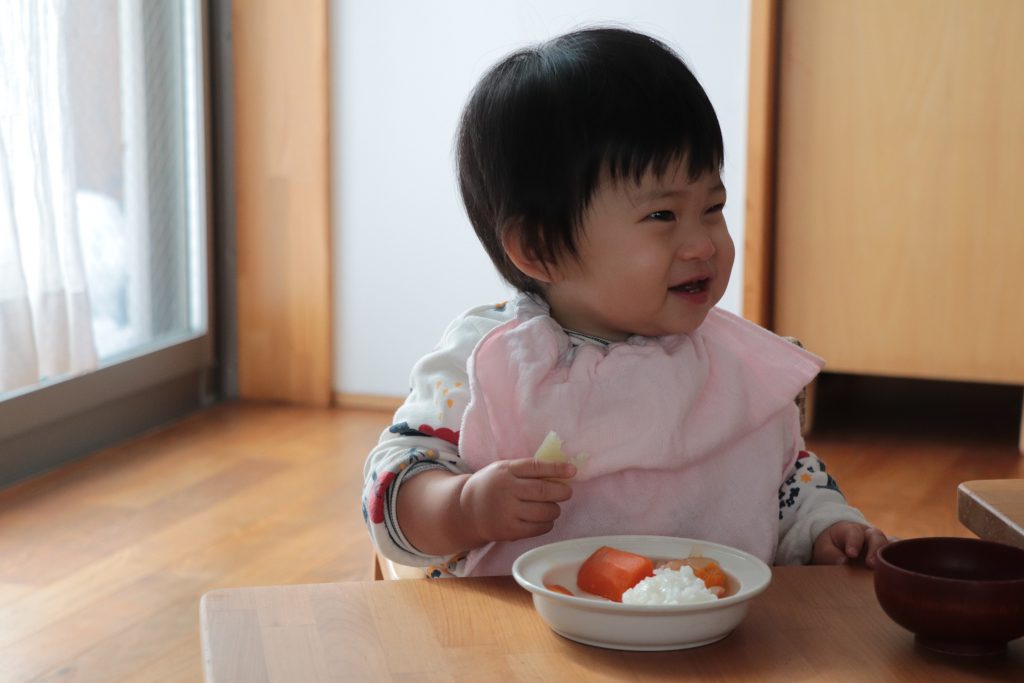
2021.09.01 Time that Passes Through Children
Text : Neina Asano
Each month, each class makes a monthly plan. In December, the Fuki class asked the question, “Let’s follow the development of the body. How do they crawl and walk?”.The Fuki class currently has L, 8 months old, C, 10 months old, and Y, 1 year and 7 months old. Their bodies have been changing rapidly, and in the two weeks between November 25, when the Fuki staff made the monthly plan, and December 10, when the monthly plan was presented to all the staff at the management meeting, they have changed a lot. L and C, who used to crawl about 1 meter, have tripled or quadrupled their distance. In late November, Y, who used to look like he was about to start walking, started walking about 10 steps without holding onto anything or anyone. For an adult, two weeks seem like a blink of an eye, but for a child, how long can two weeks be?
I found out that there is a psychological law called Janet’s law, which states that the psychological length of time is inversely proportional to age. For example, the psychological length of a year for a 50-year-old person is 1/50th of his life, but the psychological length of a year for a 5-year-old person is 1/5th of his life. When I think about this in terms of myself and the children of the Fuki class, I realize that one day for a one-year-old person is the same as 25 days for me, a 25-year-old person. It’s a very short day, but from an adult’s point of view, it’s an incredibly dense time.
It doesn’t mean that they can do more things in a day or two because they have more time to experience them, but I believe that children absorb, feel, and think much more than adults. When I think about this, I feel that every moment I spend with children is important.
It may be difficult to be happy every moment. However, we can make an effort to make every moment that passes a happy moment for our children. Laughing and crying with all their might, and being hugged by the people they love is happiness for infants. And I believe that the accumulation of happy moments is what leads to the “happiness” of children.
Just as there is no right answer to childcare, I feel that there is no right answer to “happiness” either. This is why we have set “living happily in the present” as one of our childcare goals, and why we continue to face the questions that arise as we live with children who are changing every day.

















 PREV
PREV